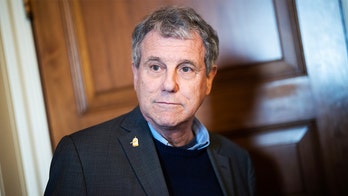Consider this scenario: A strong union state is running a budget deficit projected in the billions. The governor is asking state employees to make big sacrifices, which include pay cuts and workers contributing more for health care premiums.
Sounds like a recipe for long and loud union rallies at the state capitol, right? In Wisconsin, yes. But in Washington State, it’s happening minus the outrage.
Faced with a projected deficit of more than $5 billion over the next two years, Washington Gov. Christine Gregoire told state workers that they would not be getting the raises they had been promised, but said instead they would be getting a pay cut, and would have to pay an increase to 20 percent for health care contributions.
Two unions representing state workers sued the governor, but then sat down at the bargaining table and agreed to economic concessions. They included a 3 percent pay cut through unpaid furlough days, and a 3 percent increase, to 15 percent, in employee contributions to health care.
So why the labor harmony?
The political landscape is far different in the Evergreen State. It might as well be renamed the Ever-Blue state.
Gregoire is a Democrat. Democrats control both chambers of the state legislature. And the unions have been big political supporters of the Democrats.
In 2010, unions contributed $2.7 million mostly to Democrats and progressive ballot issues. In the 2004 governor’s race, Gregoire trailed Republican Dino Rossi after the first two ballot counts. Gregoire said she would ask for a third count, but would not be able to pay for it herself.
The Washington Federation of State Employees, which represents more than a third of state government’s 111,000 workers, put up $250,000 for the recount. Gregoire ended up winning and so did the state workers.
In the first four years after state workers received collective bargaining rights, state spending increased 33 percent. State employees were given double-digit pay raises.
Then the recession hit. Gregoire’s budget director Marty Brown knew there had to be sacrifices across the board.
“For the first time in our history, we got salary reductions for state employees,” Brown says.
The new agreement will save the state $330 million over the next two years.
Republicans say that’s still not enough.
“This labor agreement still gives thousands of state employees a 5 percent step increase in their wages,” says Republican state Sen. Joe Zarelli, “So all these things are an inconsistent message to the public.”
The Chairman of the Washington State Republican Party believes it comes down to politics.
“They (the unions) know their friends are going to take care of them,” says Kirby Wilbur. “If we had a Republican governor seriously looking at this issue objectively and saying where we could make more concessions, you would have union members in the street.”
Union leaders don’t necessarily disagree, but they say the biggest reason there has been no protest in Olympia is the governor is not going after their collective bargaining rights.
Jeff Johnson, president of the Washington State Labor Council, says Wisconsin’s Republican leaders are trying to bust the unions.
“Clearly it’s not about money,” Johnson says. “Wisconsin’s budget deficit isn’t even as big as ours, so it’s clear what they’re trying to do there.”
Zarelli did introduce a bill that would have been similar to Wisconsin. It would have stripped the state employee union’s right to collectively bargain for benefits. The bill never even got a hearing.
Some Democrats see a big difference in their Republican colleagues compared to the conservatives in the Dairy State.
“It appears that our Republican Party has not targeted labor as the bad guys,” says Democrat state Senator Ed Murray.
“They want to cut them, but they have not made them public enemy No. 1.”




